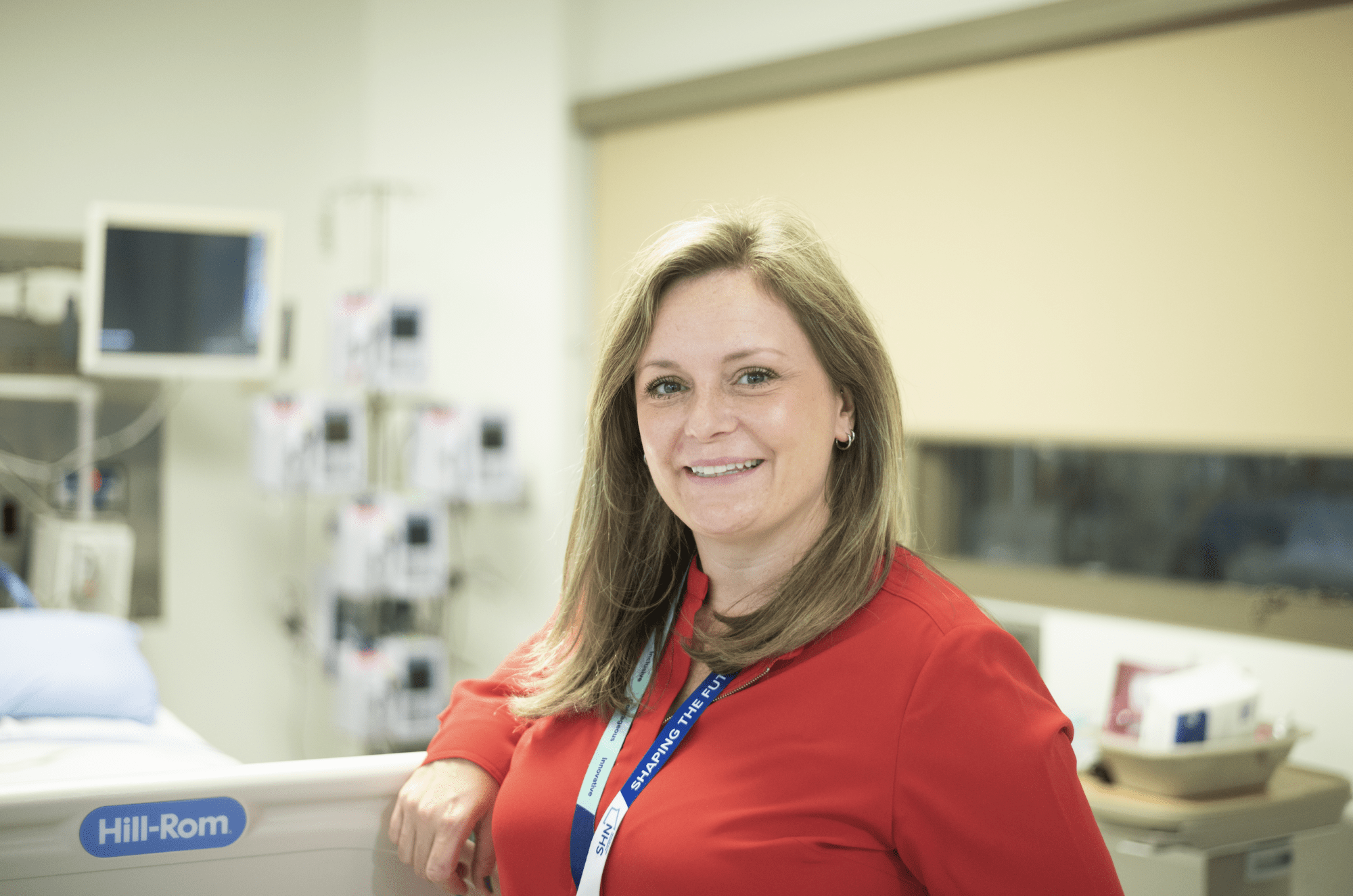Every year, thousands of people are saved by the generosity of organ donors. But how does this modern-day miracle actually happen?
Intensive care units (ICU) play a critical role when it comes to the process of organ donation. From patient hospital admission, to administering life-saving treatment and supporting discussions around end-of-life plans, ICU and Spiritual Care staff work with families to determine their loved one’s last wishes and medical plans.
The organ donation journey is complex and sensitive, and it takes the compassionate lens of incredible individuals. At Scarborough Health Network (SHN), a team of courageous medical professionals guides patients along their journey, and supports grieving families and loved ones.
Meet Amanda Firth, a registered nurse (RN) and patient care manager at SHN’s General Hospital. As we acknowledge April as Organ Donation Awareness Month and look to celebrate National Nursing Week in May, Amanda is shedding light on the important and necessary value of this selfless gift through a new Q-and-A.
After graduating from Toronto Metropolitan University (previously known as Ryerson), Amanda worked as an RN in the multi-organ transplant unit before pursing nursing leadership roles and completing her Master of Health Management. She has spent much of her career caring for patients who may be eligible to donate, or who have received the gift of transplant themselves, and has witnessed first-hand the value and impact of donation.
Editor’s Note: This interview has been edited for length and clarity.
Can you tell us about your work in organ donation?
I started my nursing career as a bedside RN taking care of patients awaiting transplant and those who have undergone organ transplant surgery. I spent 10 years taking care of transplant patients in a variety of roles. It was an incredibly meaningful job. I was honoured to be part of their healthcare journey.
What did you learn about the importance of organ donation?
Organ donation is an incredible, selfless gift that provides relief from chronic illness and improves a person’s quality of life. The impact to recipients and their families is immeasurable. Every time I sent a patient to the operating room for their transplant surgery was an emotional time for us both.
Despite over 90 per cent of Canadians being in support of transplant donation, only 32 per cent of our population has registered their consent. Sadly, patients die every day waiting for a life-saving transplant.
The gift of transplant may provide renewed hope and even helps to support individuals in times of grief, knowing their loved one has helped another person in need. Living donation is also a very successful process that can help save someone’s life!
How can we be supportive of patients and recipients along their journey of organ donation and receiving?
Organ donation is a sensitive topic, no question. Discussing transplant early, when we can be a part of the conversation is so important; ensuring our loved ones are aware of our wishes makes the whole process just a little more bearable. We should all have end-of-life discussions early (and often) so that when the time comes, we can all make decisions that align with others’ wishes.
At SHN, we have a unique and diverse population. It is important to be culturally sensitive, which includes respecting cultural differences in how death and donation are understood, experienced and responded to, as well as ensuring we’re listening, and being sensitive to non-verbal language. We, as a team, have to ensure we’re understanding what personal and cultural beliefs the family holds around organ and tissue donation, and importantly, any rituals or observances they wish to honour their loved ones.
What would you tell people who are nervous about organ donation?
There are a lot of myths out there about organ donation. For example, the quality of we provide to our patients would never be impacted by their decision to be a donor (or not). We will always deliver exceptional quality care, working with our patients and families as partners in care, no matter what they decide.
Furthermore, anyone can register to be donor. There is lots of information available that can help support individuals to make informed decisions. If you have questions, you should speak to a healthcare provider or religious leader, or explore the resources at https://www.giftoflife.on.ca/en/ or https://beadonor.ca/about-donation.
What can you say about SHN’s work with organ donation?
At SHN, we really want our community to understand the value of organ donation, both as a potential donor and as a recipient. We care for a large, culturally diverse community with a variety of beliefs, medical needs, and experiences. We want to ensure our community has the resources they need to make informed decisions and support their loved ones throughout their healthcare journey, including at end of life.
How can people register, check, or change their organ donation consent status?
Canadians can register or check their consent anytime at https://beadonor.ca/
It is a quick, easy process and you can change your mind anytime!

